After thirteen years of working as a nightclub deejay in Dallas, Jonathan discovered he wanted to farm. That drastic change in life direction isn’t quite the hairpin turn that it seems. Like many people, the 2020 pandemic hit Jonathan’s deejay career hard. During the lockdown, he started a small raised bed garden in his backyard. That’s where this story really begins.
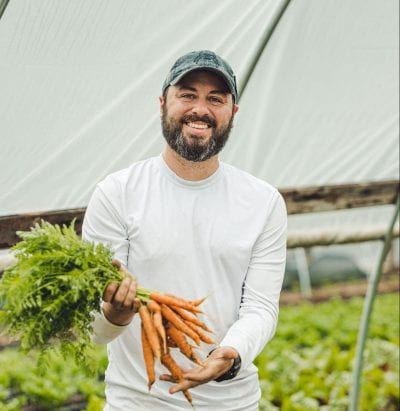 That little garden helped Jonathan get through the difficult time. It inspired a belief that he, and everyone else, needed to know how to grow food. It also launched his research on growing methods. With the help of books and YouTube videos, that small urban garden bed grew, along with his desire for a more self-sufficient homestead lifestyle.
That little garden helped Jonathan get through the difficult time. It inspired a belief that he, and everyone else, needed to know how to grow food. It also launched his research on growing methods. With the help of books and YouTube videos, that small urban garden bed grew, along with his desire for a more self-sufficient homestead lifestyle.
Jonathan had no previous farming experience before that. While researching, he discovered the CAFF Farm Apprenticeship Program in Fayetteville, Arkansas, and thought it sounded like a great way to learn. Along with other positives, the location of CAFF would bring him closer to his family. Jonathan grew up in Arkansas, about 60 miles south of Fayetteville, in Fort Smith. An apprenticeship also provided paid work while he learned to farm alongside a mentor farmer.
After enrolling, Jonathan was matched to a position at Middle Fork Farm. It’s located on a beautiful piece of land near the middle fork of the White River. The small farm produces Certified Naturally Grown vegetables for sale at the Fayetteville Farmers Market and Ozark Natural Foods.
Middle Fork Farm stresses the importance of natural soil health and its role in growing healthy food. This aligned with Jonathan’s goals for the soil of his future homestead, which was originally his only goal for the program. However, during his time as an apprentice, Jonathan saw a need for more small local farms in northwest Arkansas to meet the region’s growing desire for healthy, locally-grown food. Now, Jonathan is thinking about more than just learning to farm for himself; he’s interested in making it a career. He’d like to own a market farm someday, incorporating animal production as well.
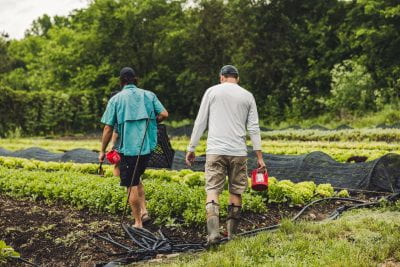 While working on the farm, Jonathan discovered a deep solace in being outside, experiencing the natural rhythms of the weather and observing its effect on growing plants. He enjoys the rewards of harvesting and pulling a vegetable out of the ground that he’s grown, knowing it will be someone’s meal.
While working on the farm, Jonathan discovered a deep solace in being outside, experiencing the natural rhythms of the weather and observing its effect on growing plants. He enjoys the rewards of harvesting and pulling a vegetable out of the ground that he’s grown, knowing it will be someone’s meal.
When asked what advice he can offer anyone considering farming or the CAFF Apprenticeship Program, Jonathan says, “Don’t be afraid of the hard work. Farming can be physically challenging, but it’s rewarding and worth it.” He also suggests doing your research, watching videos, and learning as much as possible.
Jonathan adds, “The pandemic taught people, including me, how fragile our food system is. Sustainable small farms are an important part of local food systems and the future of farming. It’s important that more of us learn to grow food. Also, you can learn to farm even if you don’t own land. There are opportunities out there.”
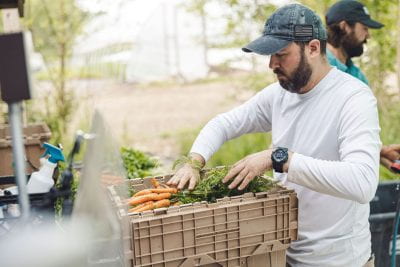 Some of those opportunities include programs at CAFF, the Center for Arkansas Farms and Food. One of these is the CAFF Farm Apprenticeship program which Jonathan participates in. All apprentice positions are paid, and some farms offer on-farm housing. Other programs include beginning farmer classes which cost just ten dollars each, many of which are available on Zoom. Another program is the CAFF Farm School, an eleven-month intensive farm education. Students learn through classes and hands-on farm production at the CAFF teaching farm located in Fayetteville. CAFF also provides continuing education opportunities for current farmers, networking events, and more. Regional farms are listed on the CAFF site for anyone looking to purchase locally-grown food. Find information on everything listed at LearnToFarm.org.
Some of those opportunities include programs at CAFF, the Center for Arkansas Farms and Food. One of these is the CAFF Farm Apprenticeship program which Jonathan participates in. All apprentice positions are paid, and some farms offer on-farm housing. Other programs include beginning farmer classes which cost just ten dollars each, many of which are available on Zoom. Another program is the CAFF Farm School, an eleven-month intensive farm education. Students learn through classes and hands-on farm production at the CAFF teaching farm located in Fayetteville. CAFF also provides continuing education opportunities for current farmers, networking events, and more. Regional farms are listed on the CAFF site for anyone looking to purchase locally-grown food. Find information on everything listed at LearnToFarm.org.
Applications for CAFF Farm Apprenticeships in 2023 are currently open for the remainder of the year. A new schedule of Beginning Farmer Classes begins in January. CAFF is part of the University of Arkansas System, Division of Agriculture.
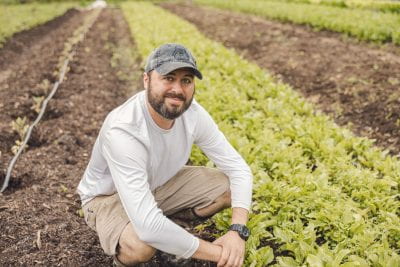
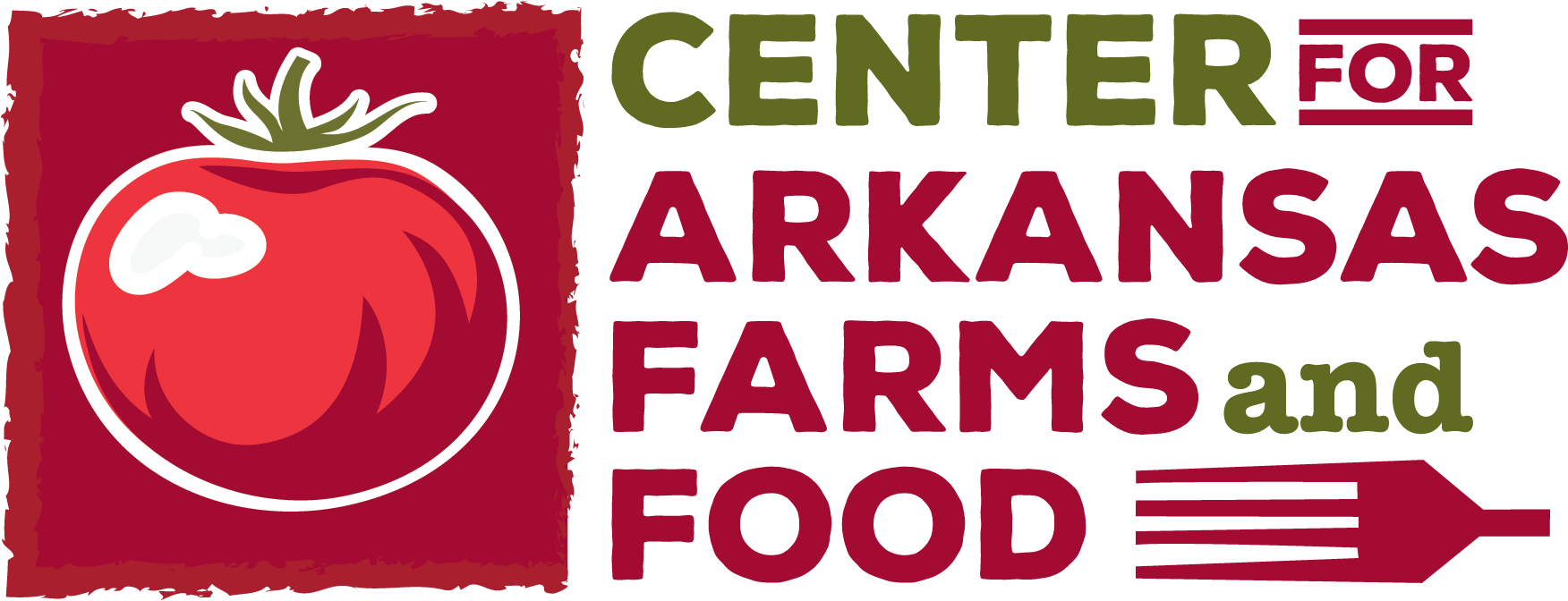
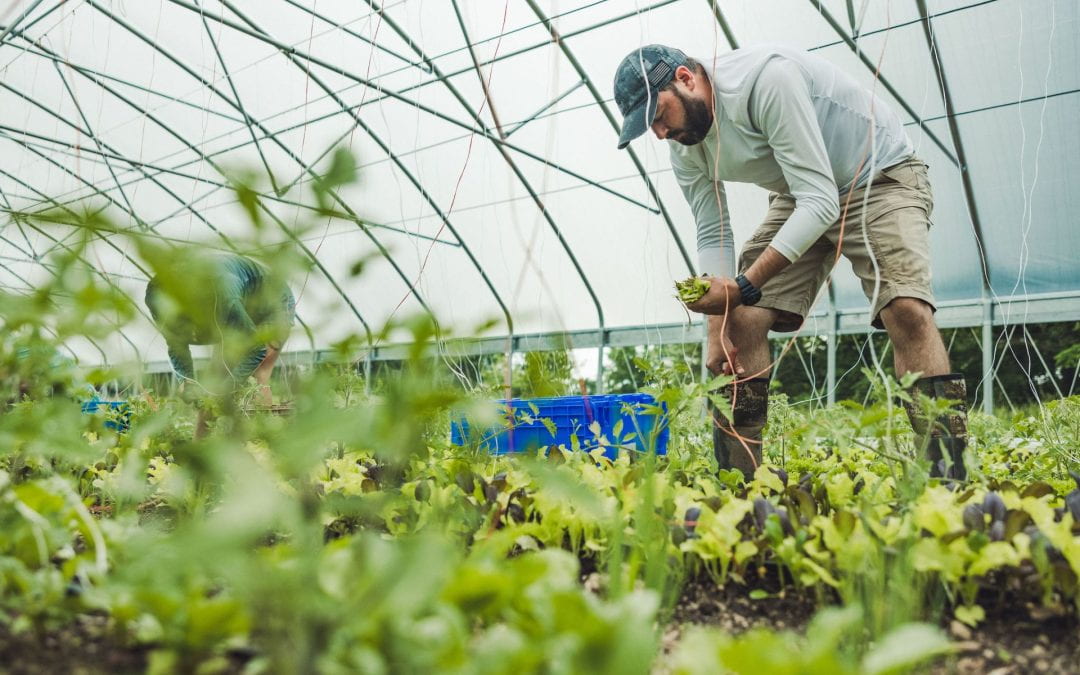
Recent Comments